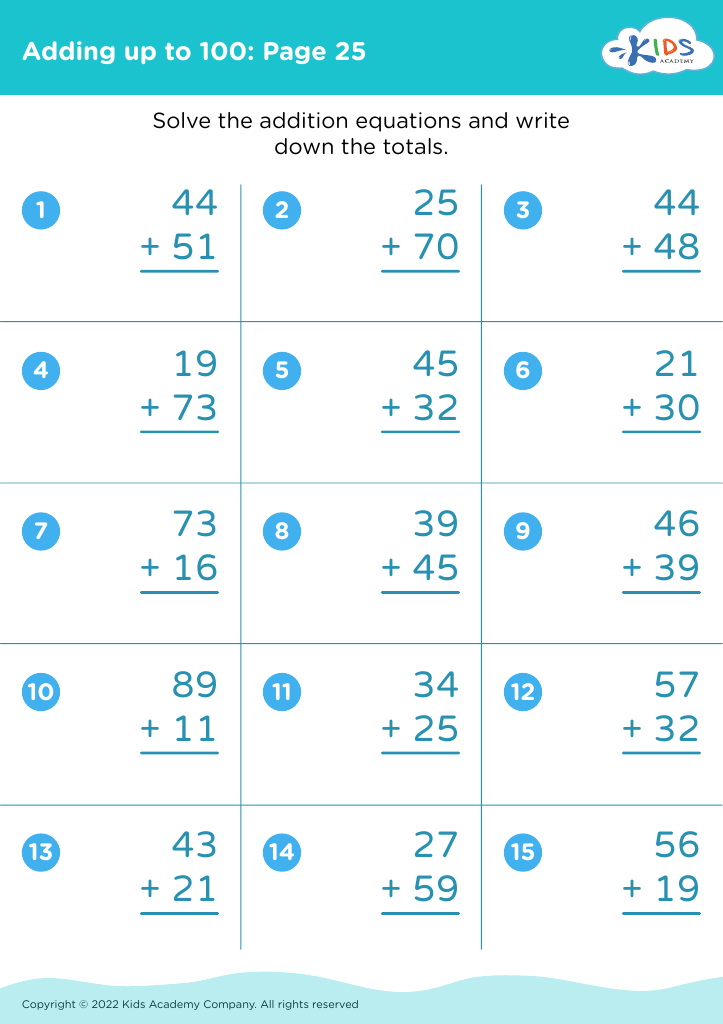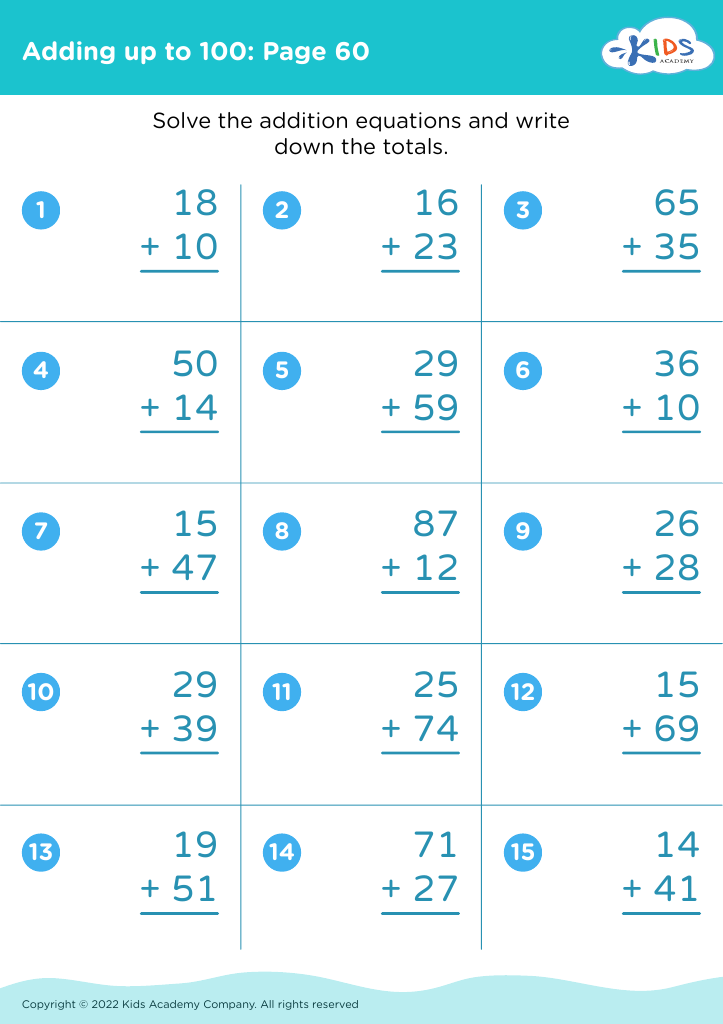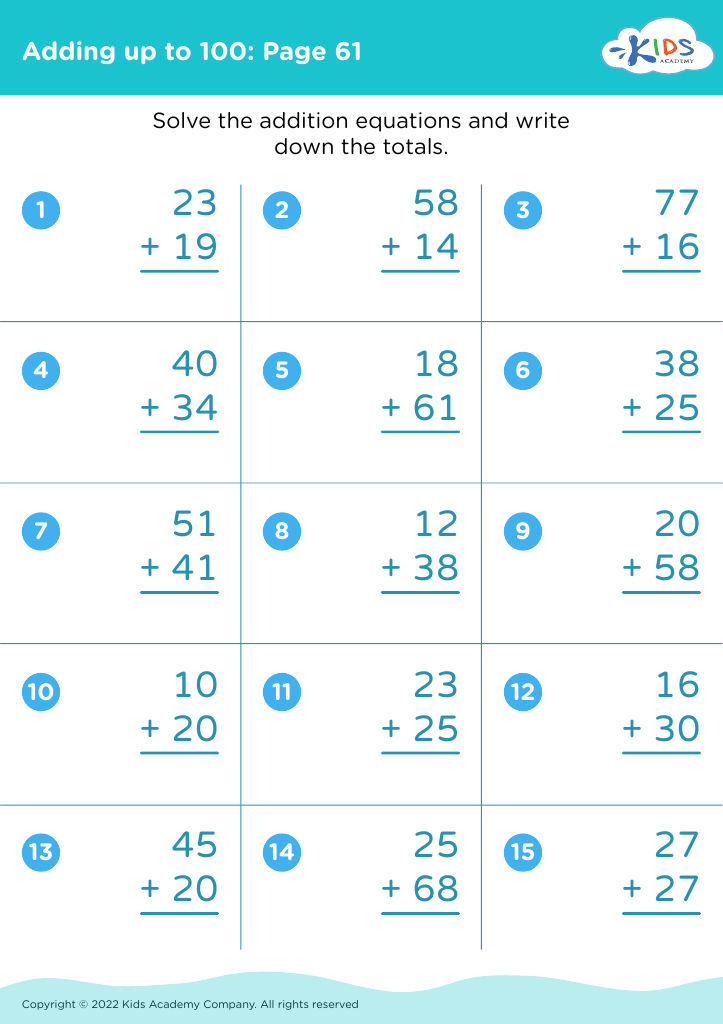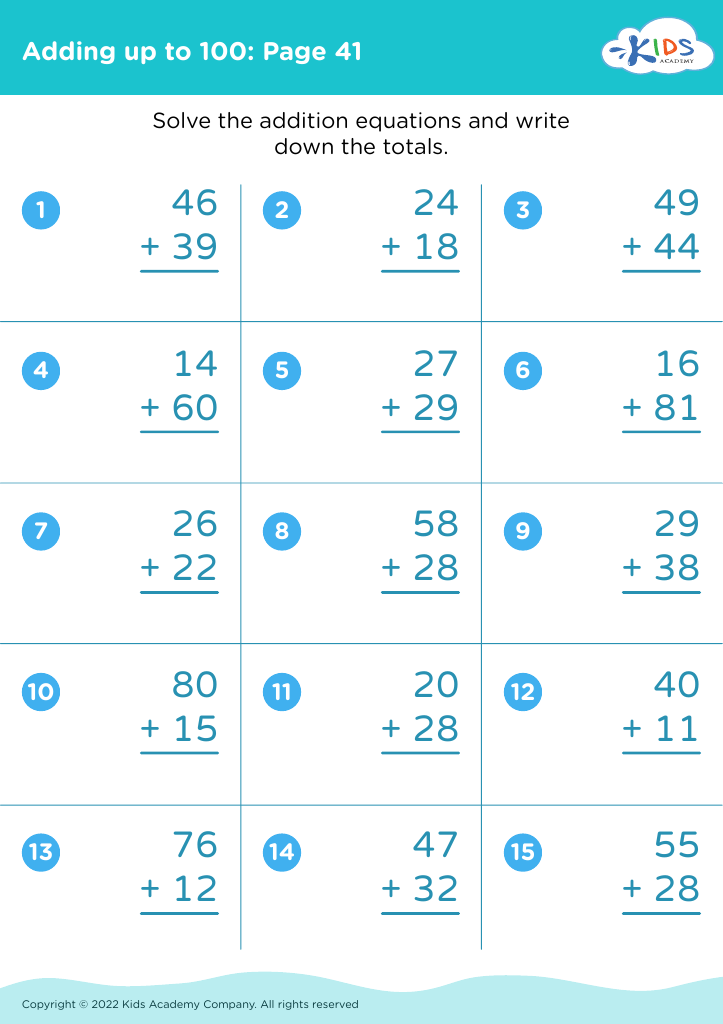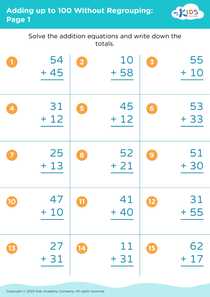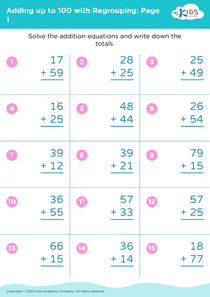Understanding Sequences Adding up to 100 Misc Worksheets for Ages 5-7
4 filtered results
-
From - To
Introduce your young learners to the fascinating world of numbers with our "Understanding Sequences Adding up to 100" miscellaneous worksheets, specially designed for ages 5-7. These engaging activities will help children grasp the concept of sequences while they practice addition and enhance their mathematical skills. Ideal for classroom or home use, each worksheet blends fun graphics with targeted exercises to reinforce learning and keep kids motivated. Whether they’re building basic numeracy or preparing for more advanced math challenges, these worksheets offer a solid foundation for understanding how numbers can add up to 100. Make math enjoyable and exciting today!
Understanding sequences, particularly adding up to 100, is crucial for early learners, typically ages 5-7, as it lays the foundation for future mathematical skills. At this stage, children are developing number sense, the ability to understand and work with numbers. Grasping sequences not only enhances their arithmetic abilities but also improves their logical thinking and problem-solving skills.
When children practice sequences that sum up to 100, they begin to recognize patterns and relationships between numbers. This understanding helps them estimate, predict, and justify their answers, which are essential skills in both math and daily life. For instance, knowing that 60 + 40 equals 100 can help a child quickly solve similar problems involving different numbers, leading to increased math confidence and proficiency.
Moreover, parents and teachers who focus on these sequences can make learning interactive and fun through various activities, like counting games or using physical objects to create visual aids. Such hands-on activities can deeply engage young learners, making abstract concepts more concrete.
By caring about these sequences, parents and teachers equip children with a strong numerical foundation, facilitating smoother transitions to more complex math concepts in later grades. Additionally, early math skills are linked to better academic performance in other subjects, underscoring the importance of mastering basic sequences.
